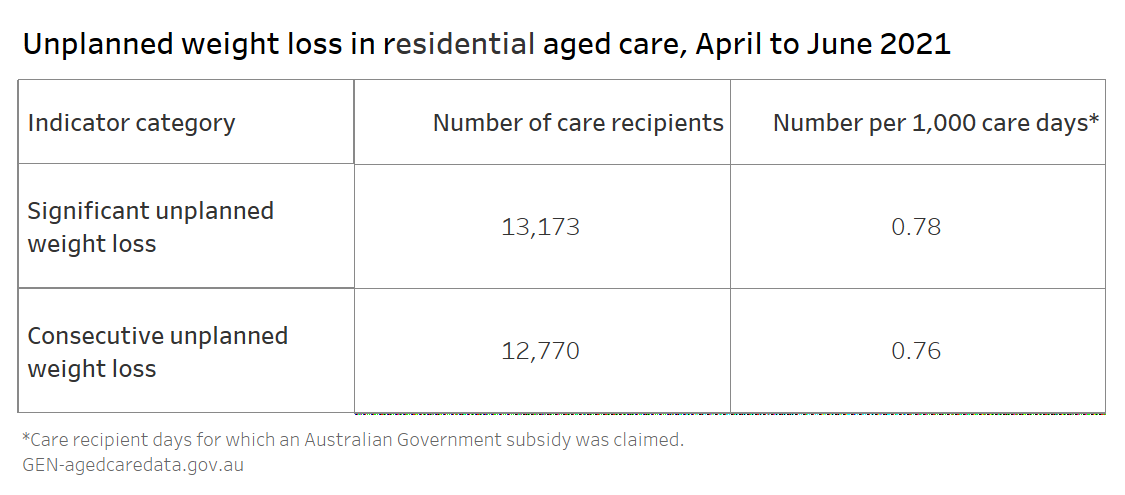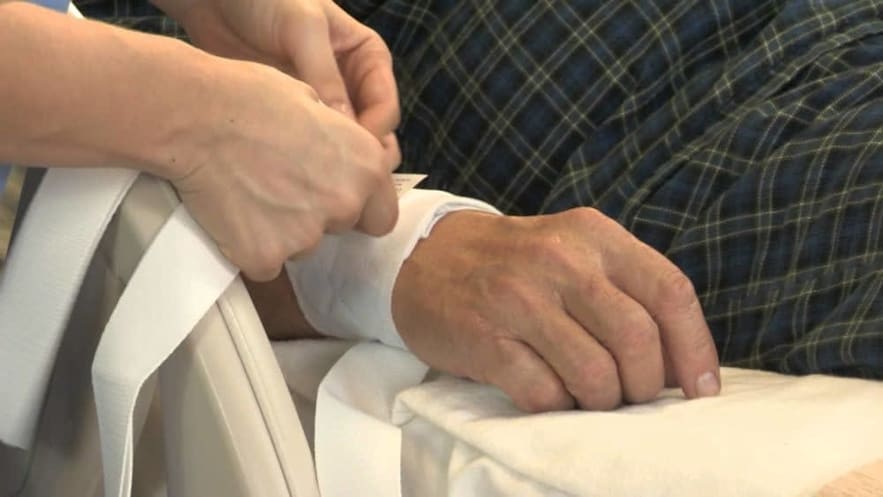The latest Residential Aged Care Quality Indicators data from Federal Government’s Australian Institute of Health and Welfare has seen a slight rise in pressure injuries but a continuing fall in the use of physical restraint.
Between 1 July 2019 and 30 June 2021, the National Aged Care Mandatory Quality Indicator Program has required residential aged care services to collect and report on three quality indicators:
- Pressure injuries;
- Use of physical restraint;
- Unplanned weight loss.
96% of all residential aged care services that received Federal Government subsidies for delivering care, services and accommodation (compared with 95% in the previous quarter) provided the data.
It showed that the total number of pressure injuries, a localised injury to the skin or underlying tissue due to pressure or friction, was its highest rate since the period October to December 2019. But the rate remains less than one incident every 1,000 days.
In aged care, a lack of movement increases the likelihood of developing a pressure injury.
Physical restraint which refers to any practice, device or action that restricts a care recipient’s ability to move freely or make decisions continues to see a fall in numbers.
An intent to restrain, which is observed assessments of intentional physical restraint of a person, at which a count of the number of restraints in use is made, was 21,396 and the observed physical restraint devices of certain kinds in use — bedrails, chairs with locked tables, seatbelts other than those used during active transport, safety vests, shackles and manacles totalled 49,415 cases.
 Between January and March this year, there were 23,595 cases of intent to restrain and 50,653 cases of physical restraint devices, compared to October to December 2020 when there were 24,476 cases of intent to restrain and 54,264 acts of physical restraint devices.
Between January and March this year, there were 23,595 cases of intent to restrain and 50,653 cases of physical restraint devices, compared to October to December 2020 when there were 24,476 cases of intent to restrain and 54,264 acts of physical restraint devices.
The data also revealed encouraging falls in unplanned weight loss in residential aged care residents.
Between January and March, there were 14,429 cases of significant unplanned weight loss and 14,391 cases of consecutive unplanned weight loss. Three months earlier, it was 14,985 and 15,274 cases respectively.










